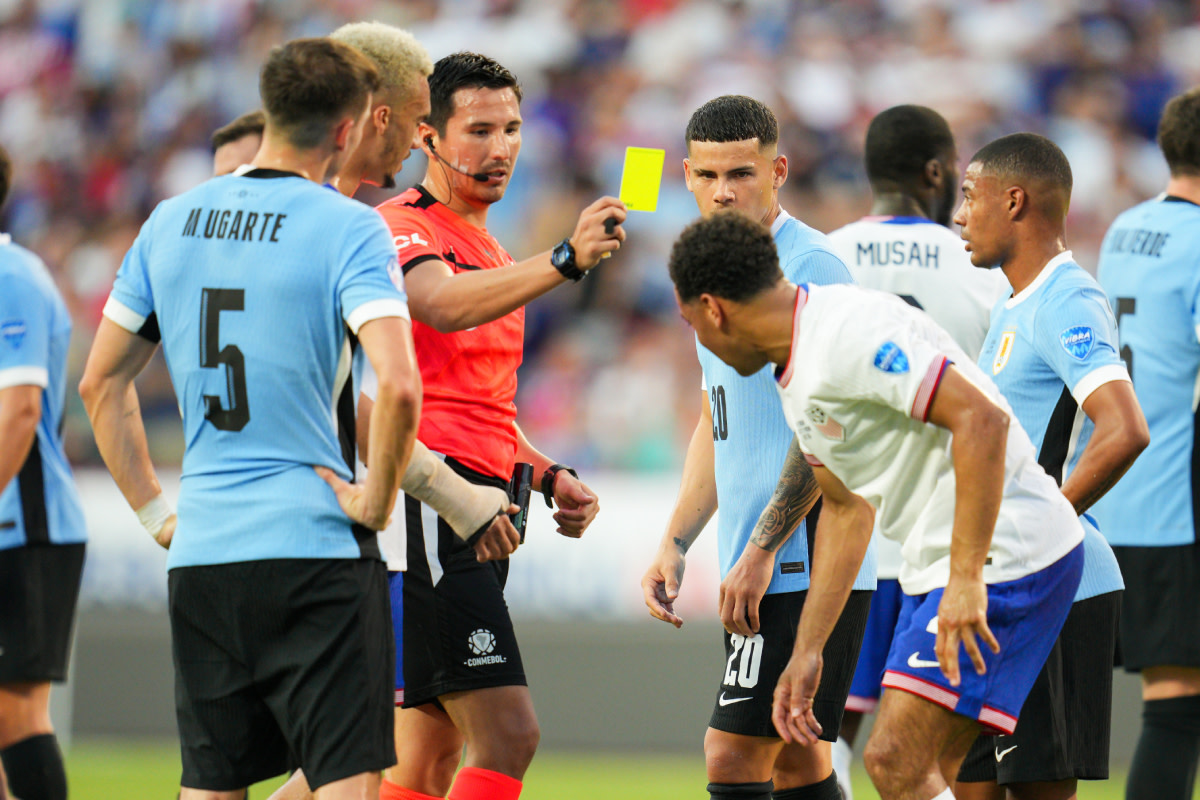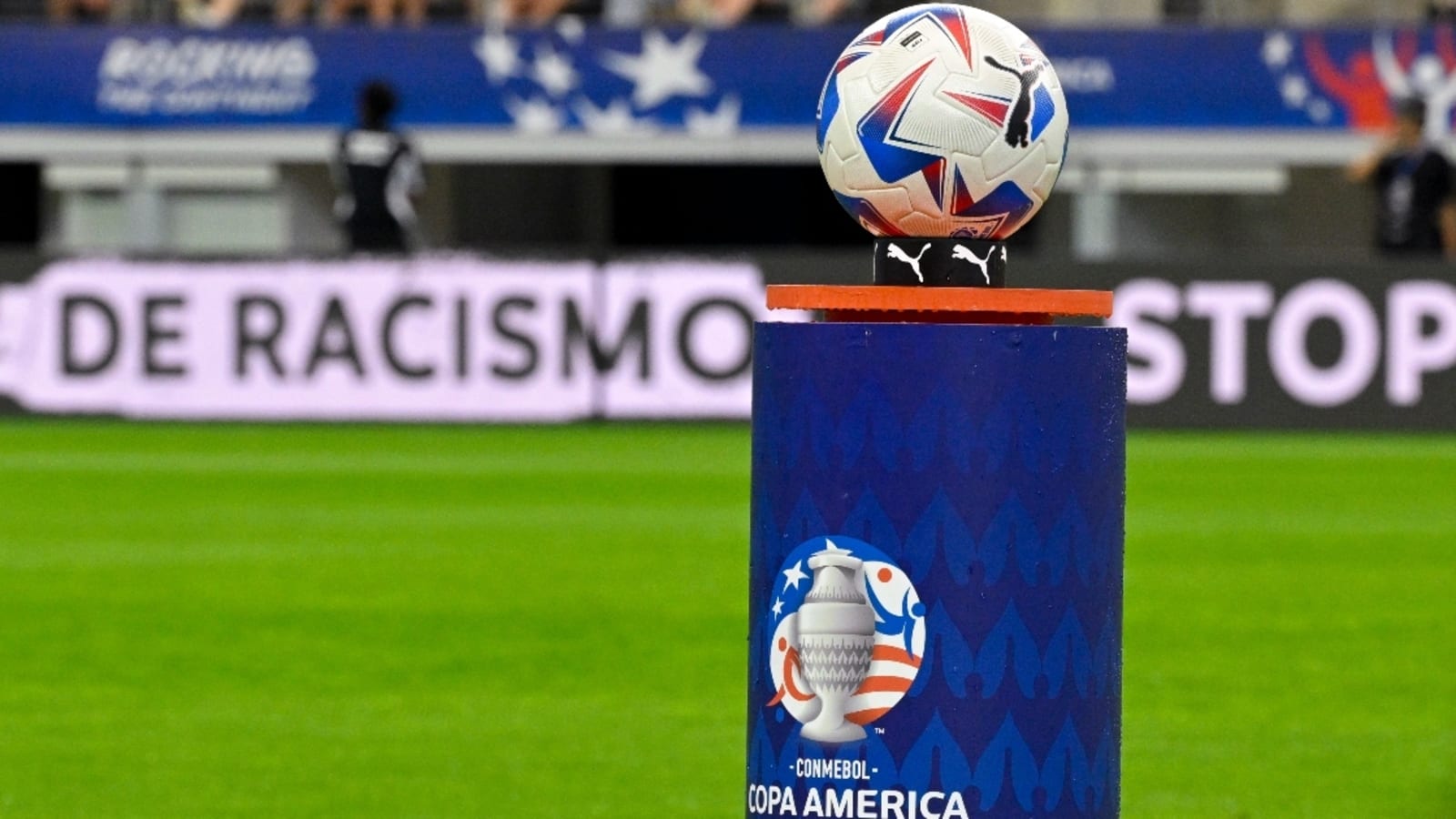Controversy and Impact of Referee Decisions

Usa uruguay referee – The USA vs. Uruguay match was marred by a number of controversial referee decisions that sparked outrage and had a significant impact on the outcome of the game. The most contentious call came in the first half when Uruguay’s Luis Suarez was awarded a penalty after a challenge from USA defender Tim Ream. The decision was widely criticized as being a soft penalty, and many felt that Suarez had dived to win the spot-kick. Uruguay went on to win the match 2-1, and the penalty decision is widely seen as having played a major role in the outcome.
Another controversial decision came in the second half when USA forward Clint Dempsey was sent off for a second yellow card. Dempsey’s first yellow card was for a foul on Uruguay’s Egidio Arevalo Rios, while his second was for a handball. The decision to send Dempsey off was harsh, and it left the USA with 10 men for the final 20 minutes of the game. This made it even more difficult for the USA to get back into the match, and it ultimately contributed to their defeat.
The referee’s decisions had a major impact on the strategies of both teams. Uruguay were able to take advantage of the penalty decision to take an early lead, and they were able to defend their lead with 11 men on the pitch. The USA, on the other hand, were forced to play with 10 men for the final 20 minutes of the game, and this made it very difficult for them to create chances and get back into the match.
The referee for the USA vs Uruguay match made some questionable calls, leading to controversy. However, the Windward Islands have a reputation for producing talented players, and they could have easily won the match if they had been given a fair chance.
The referee’s decisions ultimately cost Uruguay the game, and they will be looking to bounce back in their next match.
The referee’s decisions also had a significant impact on the overall atmosphere of the match. The crowd was愤怒ed by the penalty decision, and this led to a hostile atmosphere for the remainder of the game. The sending off of Dempsey further angered the crowd, and it made it very difficult for the USA to play their normal game.
Di mata wasi deh weh di usa uruguay referee don go make some kain fine decision for di pitch. E no dey easy to blow whistle for big match like dis one, but e try. We go still dey see more of am for dis tournament.
For now, make we shift our focus go watch france vs belgium. Na big match be dat too, and we go see how di referee go handle di mata for dia.
Analysis of Referee Performance
The referee’s performance in the match between USA and Uruguay was a subject of much scrutiny. We evaluate the referee’s technical abilities, decision-making, and potential influencing factors.
Technical Abilities
The referee demonstrated a strong understanding of the laws of the game and applied them consistently throughout the match. Their positioning was generally good, allowing them to have a clear view of the action and make informed decisions.
Decision-Making, Usa uruguay referee
The referee’s decision-making was generally sound. They made several key calls that were correct, including a penalty awarded to Uruguay and a red card shown to a USA player. However, there were also a few instances where the referee’s decisions were questionable.
Influencing Factors
Several factors may have influenced the referee’s performance. The match was played in a high-pressure environment, with both teams desperate for a win. The referee may have been under pressure to make decisions that would favor one team or the other.
Historical Context and Comparisons: Usa Uruguay Referee

The rivalry between the United States and Uruguay in soccer dates back to the early 20th century. The two teams first met in 1916, and have since played a total of 17 matches, with Uruguay holding a 9-5-3 advantage.
In recent years, the rivalry has intensified, with the two teams meeting in the semifinals of the 2010 FIFA World Cup and the quarterfinals of the 2016 Copa America Centenario. Both matches were won by Uruguay, with the latter being particularly controversial due to a number of refereeing decisions that went in Uruguay’s favor.
Refereeing Decisions
The refereeing decisions in the 2016 Copa America Centenario quarterfinal match between the United States and Uruguay were widely criticized, with many believing that the referee made several incorrect calls that benefited Uruguay.
One of the most controversial decisions came in the first half, when Uruguay was awarded a penalty kick after a challenge by U.S. defender John Brooks on Uruguay’s Edinson Cavani. Brooks appeared to have won the ball cleanly, but the referee ruled that he had fouled Cavani.
Another controversial decision came in the second half, when Uruguay was awarded a free kick on the edge of the U.S. penalty area. The free kick was taken by Luis Suarez, who scored the winning goal.
Patterns and Trends
The refereeing decisions in the 2016 Copa America Centenario quarterfinal match between the United States and Uruguay were not isolated incidents. In recent years, there have been a number of high-profile matches between the two teams that have been marred by controversial refereeing decisions.
This suggests that there may be a pattern or trend of biased refereeing in matches between the United States and Uruguay. This could be due to a number of factors, including the intense rivalry between the two teams and the fact that Uruguay is often seen as a more “physical” team than the United States.
Implications for Future Matches
The pattern of biased refereeing in matches between the United States and Uruguay has a number of implications for future matches between the two teams.
First, it creates an atmosphere of distrust and suspicion between the two teams. This can make it difficult for the players to focus on the game and can lead to unnecessary confrontations.
Second, it can undermine the integrity of the game. If fans believe that the referee is biased, they are less likely to believe that the results are fair.
Third, it can discourage teams from playing against each other. If a team believes that they are going to be unfairly treated by the referee, they may be less likely to schedule matches against that team.